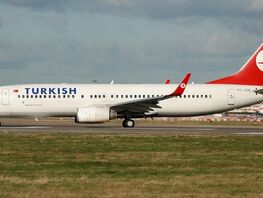Cassandra Hartblay is a cultural anthropologist and playwright. She first came to Kyrgyzstan in 2011 as a contract researcher for a Soros /OSI project about inclusive education in Central Asia. The results of that project are presented in an article titled «Raising Children without Complexes.»
Cassandra Hartblay’s area of research is the integration of people with disabilities into society and social policy. Simply put, Cassandra studies how people with disabilities adapt in society and whether the state helps them in it.
«I also did a long project about adults with mobility and speech disabilities in Russia, and wrote a play and several academic articles based on stories of six of the people I interviewed there. I’ve kept in touch with people writing about disability issues in Kyrgyzstan,» she told.
After that first visit Cassandra always imagined doing a longer research project in Kyrgyzstan. So she came back in 2022 to start the foundations of a new research study.
This project with be about the way that the patronymic name, based on a Russophone style of naming and address, is used in Bishkek today, as well as various alternatives and contestations (notably, kyzy/uluu, matronym) from a variety of social groups.
«I am studying the Kyrgyz language, history, and culture, interviewing people about the stories of their names and how they named their children, and building relationships with colleagues here,» Cassandra Hartblay told.
— What surprises you in Bishkek/ Kyrgyzstan?
— The thing that surprised me at first is that people in Bishkek speak Russian with a smile. In western Russia and Siberia where I have lived and studied, people don’t usually smile when speaking to strangers. So I had to practice holding my face in that position when I was learning to speak well in Russian. I grew up in the U.S., where we smile to be polite in interactions with strangers.
Here in Bishkek people are very warm and smiley even if you don’t know each other, although the more Soviet style still applies in certain bureaucratic contexts.
Cassandra Hartblay
— What in Bishkek reminds you of your hometown?
— People here love to go enjoy the outdoors, at Issyk-Kul or in the mountains.
Where I grew up we are the same way. We love hiking and athletic activities, as well as relaxing on the beach, and that culture is very strong in Bishkek.
— What do you miss in Bishkek/Kyrgyzstan?
— My friends, family, and pets back home in Toronto, Canada. And I miss the bike culture, we have a lot of bike lanes, and it’s an easy way to get around the city. Although I don’t like biking in the snow or when the weather is freezing, almost half the year in Toronto.
— What is your favorite place in Bishkek?
— I love Bishkek cafe culture, with the comfortable seating, outdoor patio with water mist, tea selections, and long conversations.
— What national dishes do you like?
— I love manty with pumpkin.
I also like spicy lagman, but I am vegetarian so I prefer not to eat meat, which means I can’t enjoy some of the best national cuisine like besh barmak.
Cassandra Hartblay
— What are you afraid even to taste?
— I’m not a big fan of drinking milk, so even though I like to try a sip of national beverages like kymyz, chalap, and so on, I can never finish the cup.
But my first anthropology professor, Jack Weatherford, who worked in Mongolia, always taught me that in order to appreciate the hospitality of your hosts, you must always at least try to enjoy any food or beverage you are offered. I do try to let people know in advance that I don’t eat meat, but in a pinch, I just ask to be served less meat, even though my vegetarian habits go against tradition.
— What has fascinated you in close acquaintance with the local population?
— I think it is a difficult time in Bishkek at the moment, given the influx of new residents from Russia after last September. Kyrgyz people are by and large very accommodating of visitors, and obviously given that many Kyrgyz people live and work in Russia and the country’s economies are intertwined, and the Soviet history and shared language make it easy to welcome Russian people. But it is also difficult, because rents and prices are going up. And it is frustrating knowing that the same hospitality may not be extended if the tables were turned.
— And what disappointed?
— Everyone complains that summer in the city is very hot, especially the last few years, and I agree. I also was interested to learn about the problems with the air quality in Bishkek.
As someone with asthma, the pollution limits how much I can walk or exercise outdoors in the city.
I love to run and bike, but I try to keep my exercise to the gym, because the dust and pollution in Bishkek makes it hard for me to breathe.










